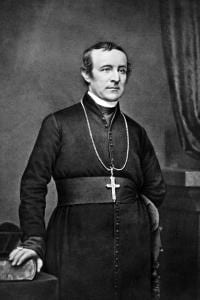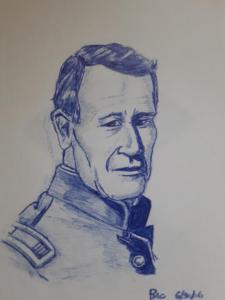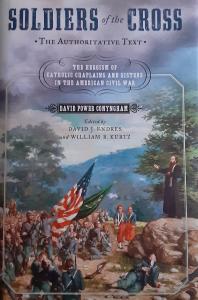![James_Ryder_Randall_cph.3a02109[1]](https://wp-media.patheos.com/blogs/sites/224/2013/05/James_Ryder_Randall_cph.3a021091-225x300.jpg) Journalist and poet, b. 1 Jan., 1839, at Baltimore, Maryland; d. 15 Jan., 1908 at Augusta, Georgia. As author of “Maryland, my Maryland”, the famous war song of the Confederacy, he has been frequently styled the “Poet Laureate of the Lost Cause”. He received his education at Georgetown University, but did not graduate. He travelled in South America and the West Indies and upon returning to the United States, accepted the chair of English Literature at Poydras College, Pointe-Coupée, La., then a flourishing Creole institution. Hearing of the attack upon the federal troops in Baltimore on 21 April, 1861, in which a classmate had been wounded, his Southern sympathies were so aroused that during the night by the light of a candle he composed what is generally acknowledged to be America’s most martial poem, which first appeared in the New Orleans “Sunday Delta” of 26 April, 1861. Reaching Baltimore, it was set to the music of “Lauriger Horatius” by Miss Jennie Cary, who added “My Maryland” to each stanza. A German musician of Southern sympathies eventually set the poem to “Tannenbaum, O Tannenbaum”, the original of “Lauriger Horatius”. After the close of the war, Randall engaged in newspaper work, holding several important editorial positions, eventually becoming Washington correspondent for the Augusta “Chronicle”. He was the author of numerous other poems, none of which, however, attained the popularity of “Maryland, my Maryland”. His later work breathed a deeply religious tone.
Journalist and poet, b. 1 Jan., 1839, at Baltimore, Maryland; d. 15 Jan., 1908 at Augusta, Georgia. As author of “Maryland, my Maryland”, the famous war song of the Confederacy, he has been frequently styled the “Poet Laureate of the Lost Cause”. He received his education at Georgetown University, but did not graduate. He travelled in South America and the West Indies and upon returning to the United States, accepted the chair of English Literature at Poydras College, Pointe-Coupée, La., then a flourishing Creole institution. Hearing of the attack upon the federal troops in Baltimore on 21 April, 1861, in which a classmate had been wounded, his Southern sympathies were so aroused that during the night by the light of a candle he composed what is generally acknowledged to be America’s most martial poem, which first appeared in the New Orleans “Sunday Delta” of 26 April, 1861. Reaching Baltimore, it was set to the music of “Lauriger Horatius” by Miss Jennie Cary, who added “My Maryland” to each stanza. A German musician of Southern sympathies eventually set the poem to “Tannenbaum, O Tannenbaum”, the original of “Lauriger Horatius”. After the close of the war, Randall engaged in newspaper work, holding several important editorial positions, eventually becoming Washington correspondent for the Augusta “Chronicle”. He was the author of numerous other poems, none of which, however, attained the popularity of “Maryland, my Maryland”. His later work breathed a deeply religious tone.
The Catholic Encyclopedia (1911)
NOTE: Catholics made great, if overlooked, contributions to Civil War music on both sides. “Dixie” was the work of Dan Emmett, a Catholic. The music to the Confederate anthem “The Bonnie Blue Flag” was done by Harry McCarthy, a cradle Catholic, and the words by Anne Chambers Ketcham, a convert who became a Third Order Dominican. In the North, Patrick Sarsfield Gilmore composed “When Johnny Comes Marching Home.”











